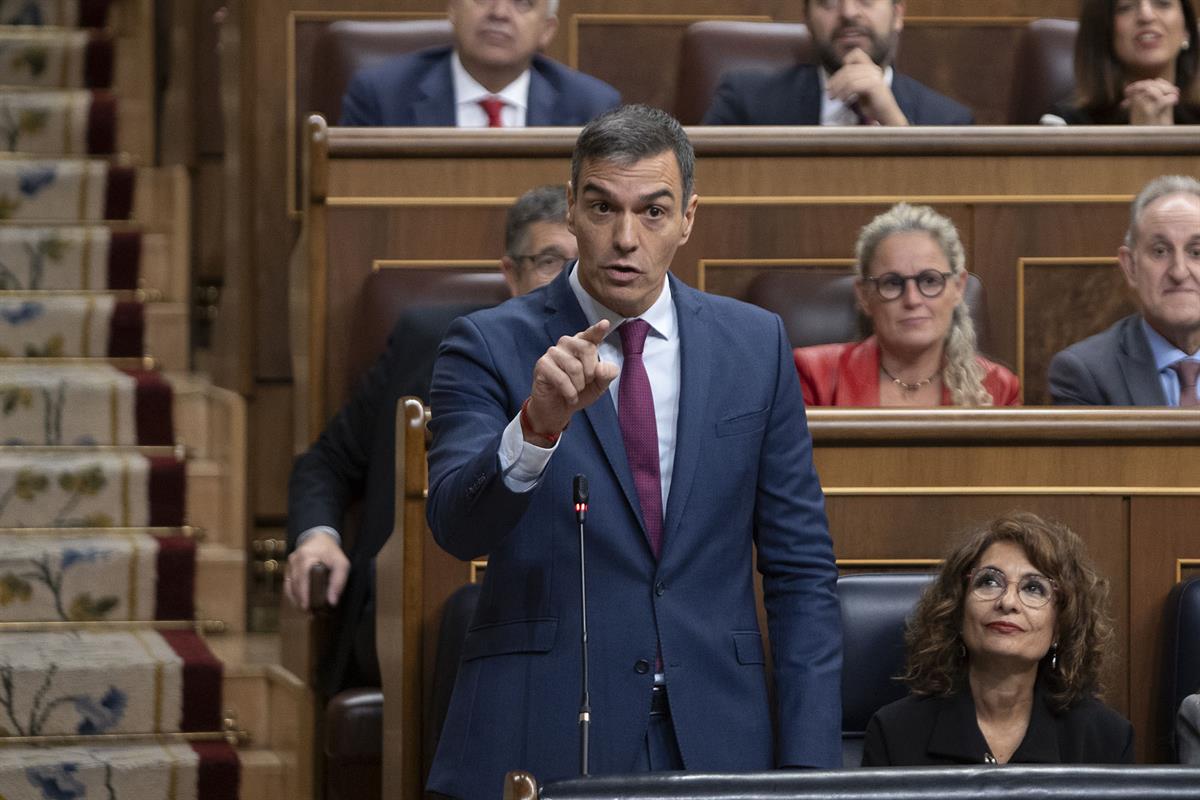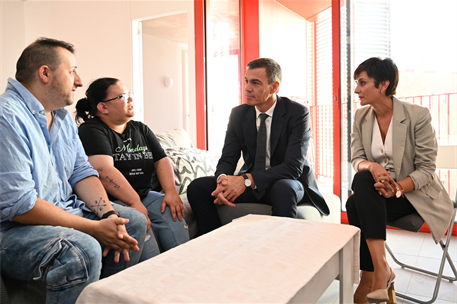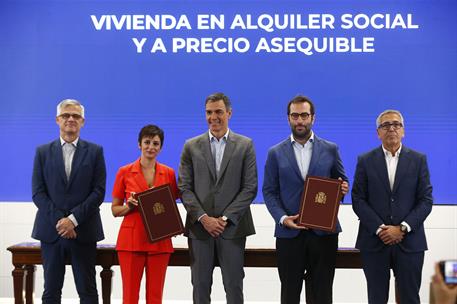Government control session in the Lower House of Parliament
Pedro Sánchez defends the "paradigm shift" of the Housing Law and calls on the regions to develop it
President's News - 2024.10.16
The President of the Government of Spain, Pedro Sánchez, during his speech at the control session in the Lower House of Parliament | Pool Congreso. 2024.10.16
-
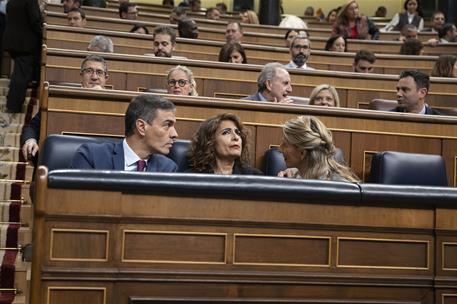 The president of the Government of Spain, Pedro Sánchez, talks with the First...
The president of the Government of Spain, Pedro Sánchez, talks with the First...
-
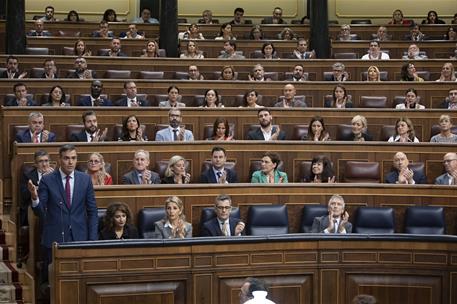 The President of the Government of Spain, Pedro Sánchez, intervenes in the control...
The President of the Government of Spain, Pedro Sánchez, intervenes in the control...
-
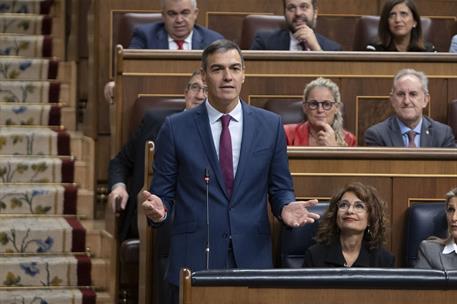 The President of the Government of Spain, Pedro Sánchez, during his speech at the...
The President of the Government of Spain, Pedro Sánchez, during his speech at the...
-
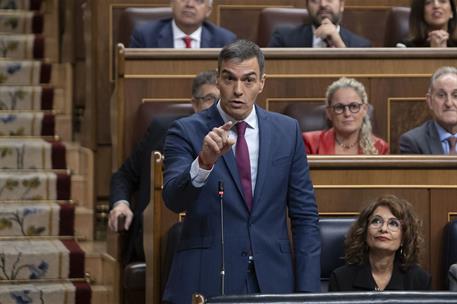 The President of the Government of Spain, Pedro Sánchez, during his speech at the...
The President of the Government of Spain, Pedro Sánchez, during his speech at the...
Lower House of Parliament, Madrid
The President of the Government of Spain, Pedro Sánchez, has assured the Lower House of Parliament that the Housing Law has meant a "paradigm shift" in the policies to respond to this problem, but requires its development by the autonomous communities as the administrations that hold most of the competences in this area.
The Housing Law "needs the political commitment of the Government of Spain, but also the development of the autonomous communities", said the head of the Executive, in response to Aitor Esteban of the Basque Parliamentary Group (EAJ-PNV) during the parliamentary control session of the Government.
"The data I think is quite eloquent," stressed Pedro Sánchez, who pointed out that 140 municipalities in Catalonia are applying the Housing Law, which has meant a 5% drop in the average rental price in the second quarter of this year compared to the previous quarter. In contrast, prices have remained stable or even increased in Catalan localities that do not have a declaration of being a stressed area.
These figures represent "the biggest fall in the entire historical series in almost twenty years", noted the president of the Government of Spain. For this reason, he stated that the Government welcomes the development of the Housing Law that has begun in the Basque Country with the declaration of Rentería as a stressed area, among other applications of the regulations in this community.
More social housing
"We have a lot to do," explained Pedro Sánchez, after recalling that the subsidised housing stock in Spain accounts for 2% of the total housing stock, compared to 9% of the European average, and for this reason he announced the promotion of 180,000 more subsidised housing units in the current legislature in his investiture speech as president of the Government of Spain.
In this sense, the president of the Government of Spain acknowledged that "we need time and commitment from all the administrations" to resolve "the serious housing drama suffered by many citizens, particularly young people."
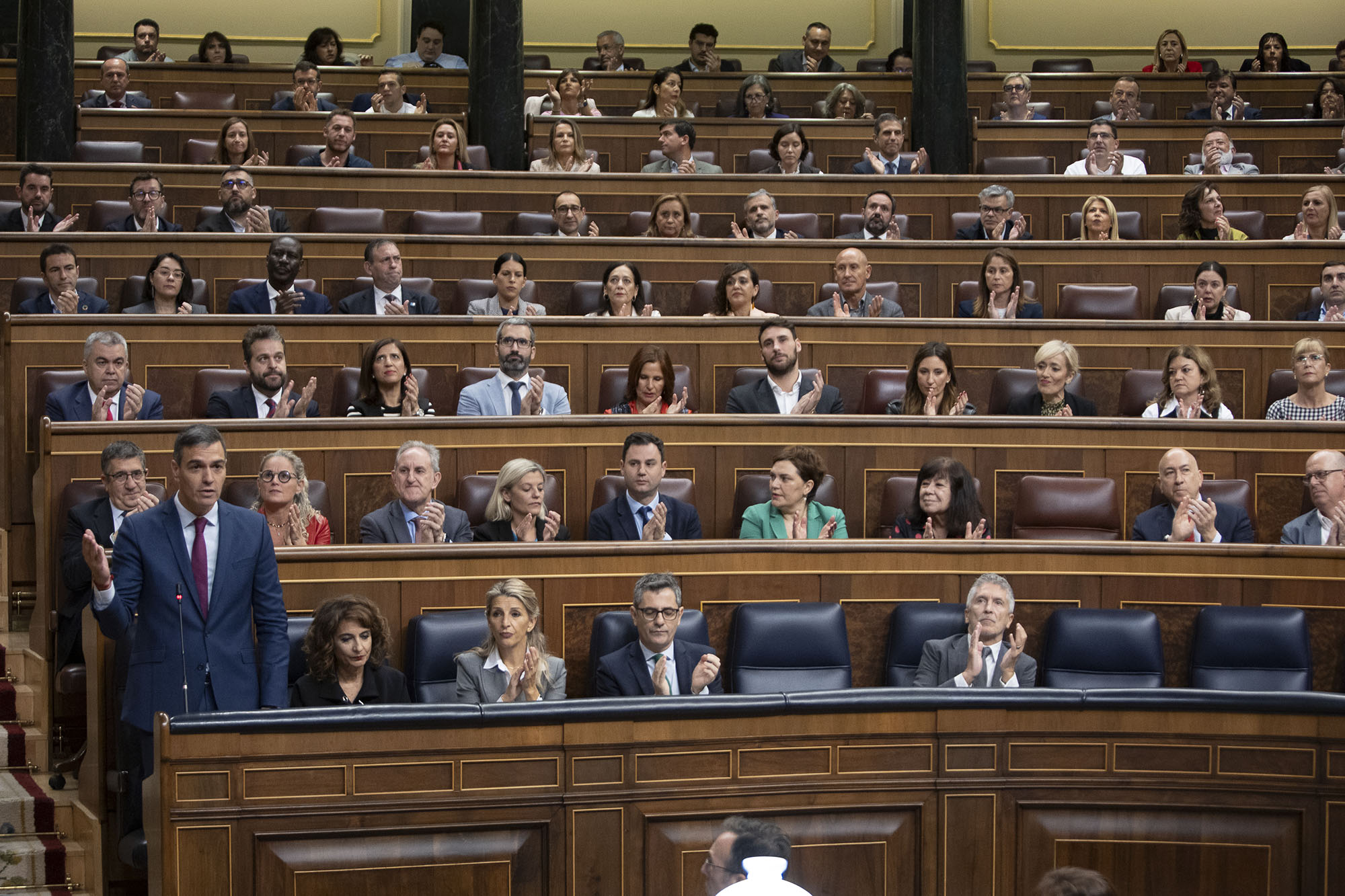 The President of the Government of Spain, Pedro Sánchez, intervenes in the control session in the Lower House of Parliament | Pool Congreso
The President of the Government of Spain, Pedro Sánchez, intervenes in the control session in the Lower House of Parliament | Pool Congreso
Government action on corruption
In his response to Alberto Núñez Feijóo, a member of the People's Parliamentary Group, Pedro Sánchez defended the Government's actions in the face of corruption cases. According to the president, the Executive has tackled this issue "with forcefulness" and "has collaborated with the justice system and the State Law Enforcement Forces and Agencies."
In this context, Pedro Sánchez has claimed Government action as his main commitment in the coming years: "Our approach between now and 2027 is to leave a better country, more united socially and territorially and more prosperous," he said. He added: "There is the data on economic growth, job creation and inflation."
Progressive legislative initiatives
The president also underlined the progressive nature of the legislative initiatives promoted by the Executive in his reply to Ione Belarra, a member of the Joint Parliamentary Group.
"This Government has rebuilt the Toledo Pact, revalued pensions, filled the pension fund and approved a labour reform that has halved temporary employment," said Pedro Sánchez.
The president also highlighted the increase in the minimum wage, the approval of the Equal Pay Act and the Parity Law as examples of this line of action as well as progress in the fields of education, science, democratic memory and ecological transition.
Non official translation
